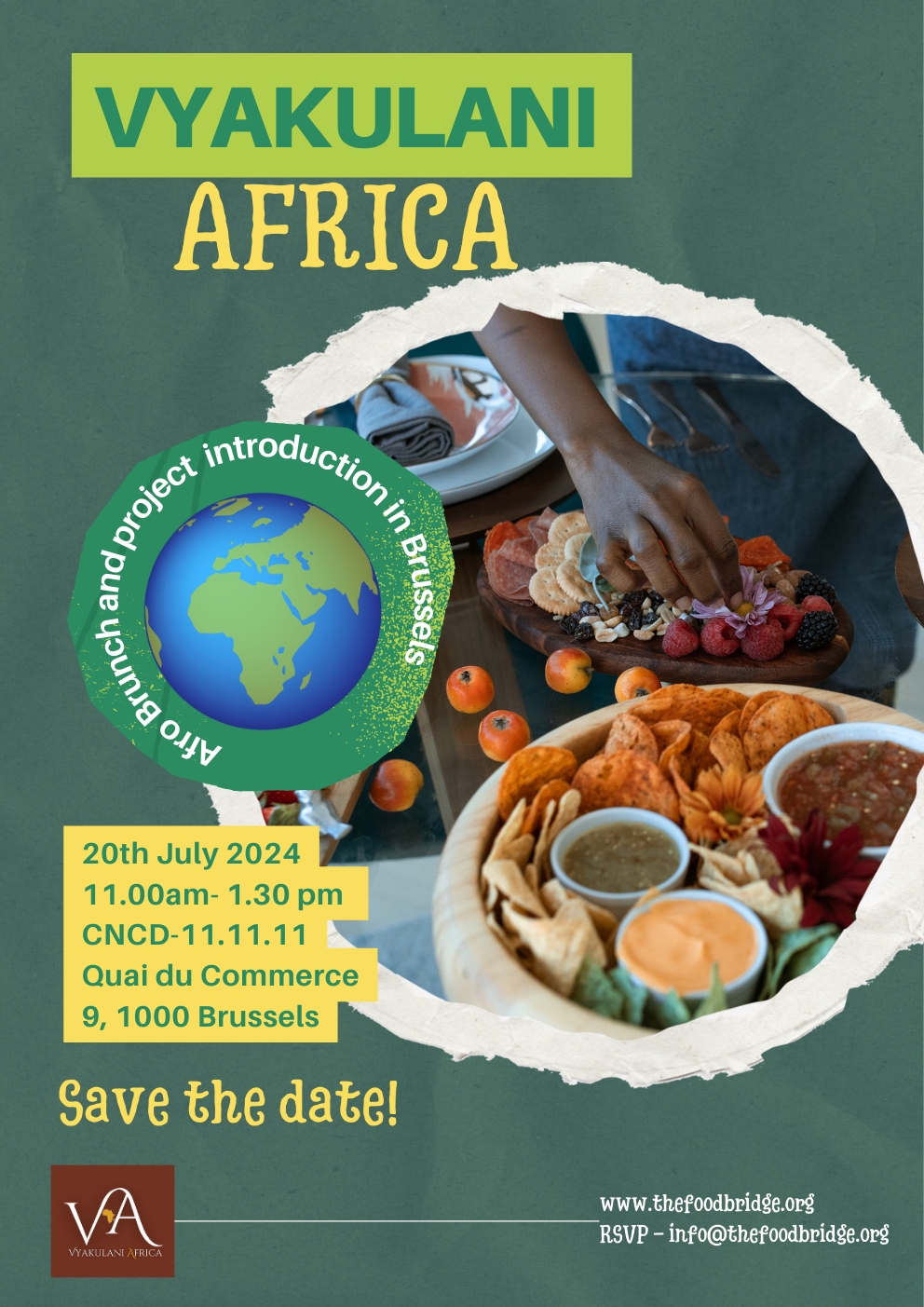 We are thrilled to invite you to a unique Afro brunch that celebrates the rich and diverse flavors of Africa. This brunch is more than just a meal; it's about community, connection, and cultural exchange. It will be an immersive cultural experience for people from all walks of life to come together, share stories, and celebrate the rich cultural tapestry that African cuisine represents.
We are thrilled to invite you to a unique Afro brunch that celebrates the rich and diverse flavors of Africa. This brunch is more than just a meal; it's about community, connection, and cultural exchange. It will be an immersive cultural experience for people from all walks of life to come together, share stories, and celebrate the rich cultural tapestry that African cuisine represents.
At the heart of the Afro Brunch is the Vyakulani Africa Project which plans to engage with the African diaspora in Belgium to document and share the diverse culinary traditions that have traveled from Africa to Europe. By working closely with local communities, the Vyakulani Africa Project’s aim is to create a comprehensive and interactive map of African food heritage in Belgium, showcasing the rich and varied gastronomic traditions that African migrants have brought with them.
By participating, you can:
- Share Your Stories: Contribute your personal and family recipes, food stories, and culinary traditions to a collective database that celebrates the African food legacy.
- Learn and Discover: Gain insights into the diverse flavors and cooking techniques of Africans through workshops, cooking classes, and cultural exchanges.
- Connect with the Community: Meet like-minded individuals, build connections, and be part of a vibrant community that values and celebrates African culture.
- Promote Cultural Heritage: Help bring the rich culinary heritage of Africa to a wider audience, fostering appreciation and understanding of African culture through food.
How to Get Involved
The Vyakulani Africa Project is open to everyone who is passionate about African cuisine and culture. Whether you are a seasoned cook, a food enthusiast, or someone with a keen interest in cultural heritage, there is a place for you in this project. Join us on the 20th of July 2024 and get more information. The venue is CNCD-11.11.11 Quai du Commerce 9, 1000 Brussels, from 11am to 1.30pm.
Vyakulani Africa is an initiative of the Food Bridge vzw in collaboration with the Africa museum Belgium, Diaspofood Research group ULB, Sankaa vzw and funded by the EU Impetus Accelerator Program
